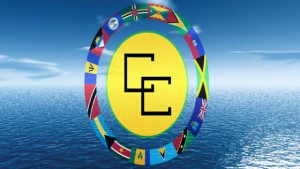 CARICOM Secretary General Irwin La Rocque believes the United States’s listing of member states as money laundering jurisdictions could have devastating effects on the region.
CARICOM Secretary General Irwin La Rocque believes the United States’s listing of member states as money laundering jurisdictions could have devastating effects on the region.
In its latest International Narcotics Control Strategy Report, 14 of CARICOM’s 15 nations were labelled negatively.
“I think these unilateral blacklistings are not helping anything,” he said, adding that “there ought to be some discussion and transparency on how these lists are arrived at.
La Rocque spoke to the AFP news agency after the issue was discussed by CARICOM trade ministers at a two-day meeting in Guyana, on the northeast coast of South America.
Most of the countries have economies heavily dependent on tourism and financial services such as offshore banking and economic citizenships.
The only CARICOM member state not blacklisted by Washington was Montserrat, a British overseas territory.
When CARICOM foreign ministers meet in Barbados next month they will prepare the groundwork to intensify regional lobbying efforts in the US, La Rocque said.
He insisted CARICOM members comply with international norms for fighting money laundering.
“All of a sudden we see these unilateral blacklistings. This is not the way to do it,” he said.
In recent years, a number of US commercial banks have cut relationships with some banks across the Caribbean in an effort to reduce the risk of being exposed to movement of dirty money across borders.
These moves have been part of a global fight against money laundering and terror financing.
Listed as “major money laundering countries” in the International Narcotics Control Strategy Report are Antigua and Barbuda, the Bahamas, Barbados, Belize, Dominica, Grenada, Guyana, Haiti, Jamaica, St Kitts and Nevis, St Lucia, St Vincent and the Grenadines, Suriname, and Trinidad and Tobago.
